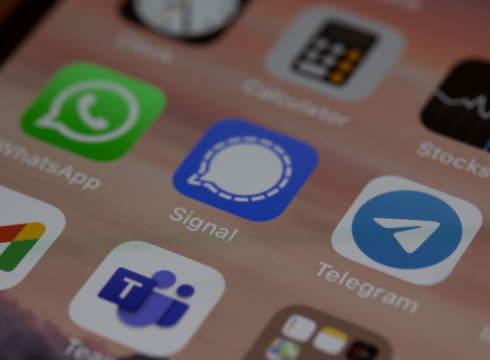The draft Indian Telecommunication Bill, 2022 seeks to replace the Indian Telegraph Act, 1885, the Indian Wireless Telegraphy Act, 1933 and the Telegraph Wires Act, 1950
The draft bill has proposed that OTT communication apps such as Whatsapp obtain a licence from the government
The bill has been put out for public consultations and the last date to send comments on the bill is October 20
Inc42 Daily Brief
Stay Ahead With Daily News & Analysis on India’s Tech & Startup Economy
The Ministry of Communications has proposed widening the definition of telecommunication services to regulate new-age services like over-the-top (OTT) communication services.
The draft Indian Telecommunication Bill, 2022, released on Wednesday, has proposed extending the scope of the term telecommunication services to include OTT services, satellite-based communication services, internet-based communication services, in-flight and maritime connectivity services, interpersonal communications services, and machine-to-machine communication services.
The Bill seeks to replace three laws – the Indian Telegraph Act, 1885, the Indian Wireless Telegraphy Act, 1933 and the Telegraph Wires (Unlawful Possession) Act, 1950, the ministry said in a statement.
The draft bill has proposed that OTT communication apps such as Whatsapp obtain a licence from the government.
“The term “telecommunication network” means a system or series of systems of telecommunication equipment, or telecommunication infrastructure, or both, including terrestrial or satellite networks or submarine networks, or a combination of such networks, used or intended to be used for providing telecommunication services, but shall not include customer equipment,” the ministry elaborated.
The bill has been put out for public consultations and the ministry has sought comments from the stakeholders till October 20.
Earlier, telecom players had urged the Department of Telecommunications (DoT) to regulate OTT communication apps such as WhatsApp, Telegram and Signal to provide a “level playing field”.
The industry urged to bring in a ‘forward looking’ law that addresses the requirements of the convergence of various digital services.
It was not the first time that telecom operators had spoken against OTT communication apps. The main reason for the dispute is that the key revenue generators for telecom players – voice and messaging services – have seen a huge decline with the increasing use of OTT communication apps as they provide free audio and video calling and messaging services.
Besides, telecom companies need to acquire spectrum licences and undertake heavy capital expenditure to provide services. However, OTT communication apps such as WhatsApp and Telegram do not need any permit to offer their services and are not regulated by any authority.
The issue was also debated intensely in 2018, when the Telecom Regulatory Authority of India (TRAI) released a consultation paper to analyse whether apps offering free voice, messaging and video call services were affecting the traditional revenue stream of telecom operators.
Note: We at Inc42 take our ethics very seriously. More information about it can be found here.


